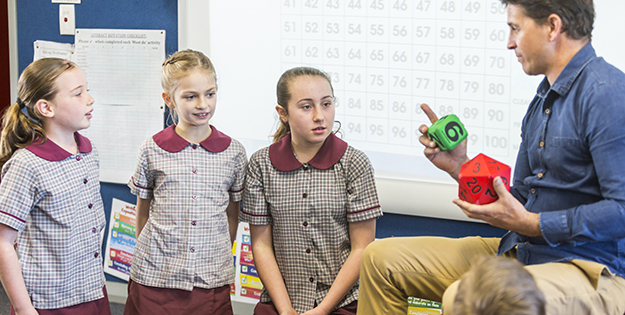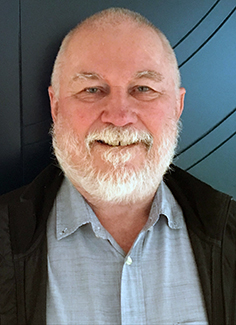Global
Copyright@ Australian Catholic University 1998-2026 | ABN 15 050 192 660 CRICOS registered provider: 00004G | PRV12008
Copyright@ Australian Catholic University 1998-2026 | ABN 15 050 192 660 CRICOS registered provider: 00004G | PRV12008

ACU Professor of Mathematics Vincent Geiger is on a mission to help educators extend their understandings and teaching of STEM beyond the topics commonly taught in schools.
“Coding and robotics are important, but it’s not enough,” Professor Geiger said. “The ideal situation is integrated work where we are connecting each of the individual disciplines in developing a response to a single problem. We need greater opportunity in schools for this type of integration.
“When we grow up, very few of us just do maths or science in their pure forms. Real world problems require us to integrate different types of knowledge and bring them together to solve a range of problems – that’s interdisciplinary work.”
With a background in experimental physics, civil engineering, technology, and of course mathematics, Professor Geiger is well placed to provide students with real-world opportunities and practical, as well as authentic, resources.
Professor Geiger’s STEM in education research is driven by his aim to make STEM subjects engaging and meaningful for students.
“Most kids search for the reason they are doing something. We’ve seen higher engagement in kids when there’s a purpose,” he said.
And for Professor Geiger, this purpose is as important beyond the classroom as within it.
“It’s very much about empowerment and providing agency for students as future citizens,” he said.
Professor Geiger said school STEM teaching and learning approaches needed to focus on real world disruptions and challenges such as environmental and sustainability issues, pandemics, equity and inclusion barriers, and threats to peace and the economy.
Doing so would make the vital STEM subject areas authentic and purposeful for students, as well as encourage them to pursue associated careers after secondary school.
“Mathematics, STEM and mathematical modelling underpin the careers which we need to address these world issues,” he said.
“We need to get people to believe in the ability of mathematics and STEM generally to deal with these problems.”
Professor Geiger said it was important to improve students’ evaluative literacy and build their scientific understandings to enable them to be critical thinkers and active citizens.

“We need to have a citizenry that’s capable of maintaining a democracy and dealing with the problems in society,” he said.
“It’s part of being an informed participatory and responsible citizen.”
Along with his team at ACU’s Institute for Learning Sciences and Teacher Education (ILSTE), Professor Geiger is leading several research projects designed to help educators support their students in a range of STEM areas.
These projects include a partnership with the University of Tasmania and University of New South Wales to develop professional development materials which will assist school principals to help their staff improve STEM teaching and learning.
“Principals don’t often feel comfortable acting in this space. But if things are going to happen in schools, principals have got to be involved and be on top of it,” Professor Geiger said.
“The professional development materials we are creating will help them to develop a positive learning culture around STEM in schools.”
Ways to boost critical thinking in mathematics is another key area of interest for Professor Geiger and his ILSTE team.
Accordingly, a project funded by the Australian Research Council is giving them a chance to develop authentic problem-focused learning tasks for teachers to use in upper primary and secondary classrooms.
“Critical thinking brings in social and political dimensions to what we do,” Professor Geiger said.
“Some people think mathematics is pure and shouldn’t be diluted by talking about the problems of the world, but it’s about time we started talking about these things in mathematics.
“Maths is a powerful tool for solving, addressing, and understanding these issues.”
Professor Geiger and fellow ACU education researcher Dr Sarah Digan are also investigating the use of mathematical modelling and the exploration of large data sets in the classroom in a partnership with German Academic Research Exchange Service, DAAD.
The project is looking at how students can use big data to investigate real world issues related to sustainability in an informed and critical way.
“Students need to know how to analyse, evaluate, and put data to the test,” Professor Geiger said.
“Critical thinking in all STEM areas is vital.”
Vince Geiger is a professor of mathematics education at the Institute for Learning Sciences and Teacher Education (ILSTE), ACU. He is Director of the STEM Education: Design and Growth Across the Disciplines program within ILSTE.

Passionate about education? Explore the options.
Copyright@ Australian Catholic University 1998-2026 | ABN 15 050 192 660 CRICOS registered provider: 00004G | PRV12008